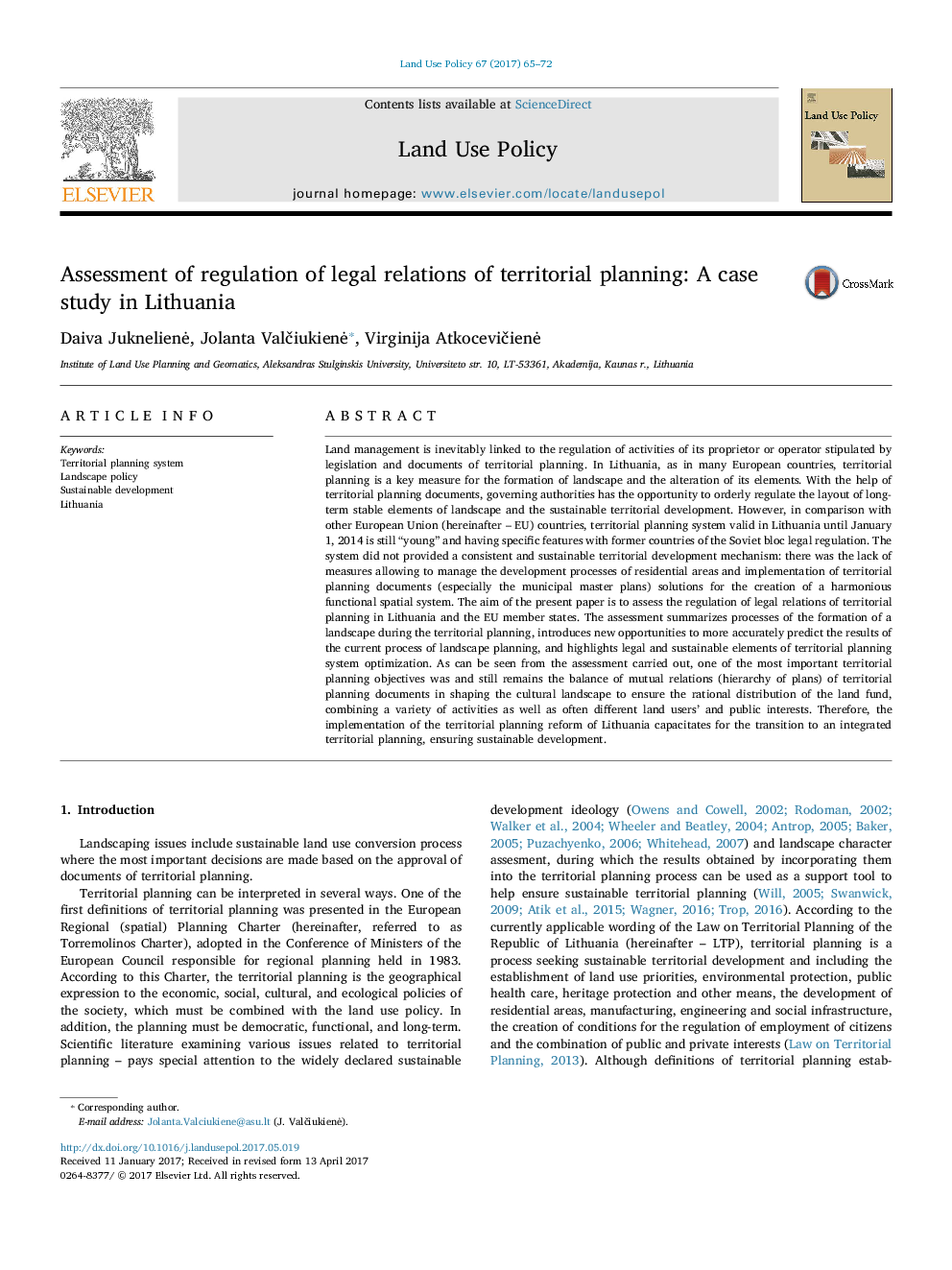ترجمه فارسی عنوان مقاله
ارزیابی تنظیم روابط حقوقی برنامه ریزی ارضی: مطالعه موردی در لیتوانی
عنوان انگلیسی
Assessment of regulation of legal relations of territorial planning: A case study in Lithuania
| کد مقاله | سال انتشار | تعداد صفحات مقاله انگلیسی |
|---|---|---|
| 111972 | 2017 | 8 صفحه PDF |
منبع

Publisher : Elsevier - Science Direct (الزویر - ساینس دایرکت)
Journal : Land Use Policy, Volume 67, September 2017, Pages 65-72
ترجمه کلمات کلیدی
سیستم برنامهریزی حومه سیاست چشم انداز، توسعه پایدار، لیتوانی،
کلمات کلیدی انگلیسی
Territorial planning system; Landscape policy; Sustainable development; Lithuania;

